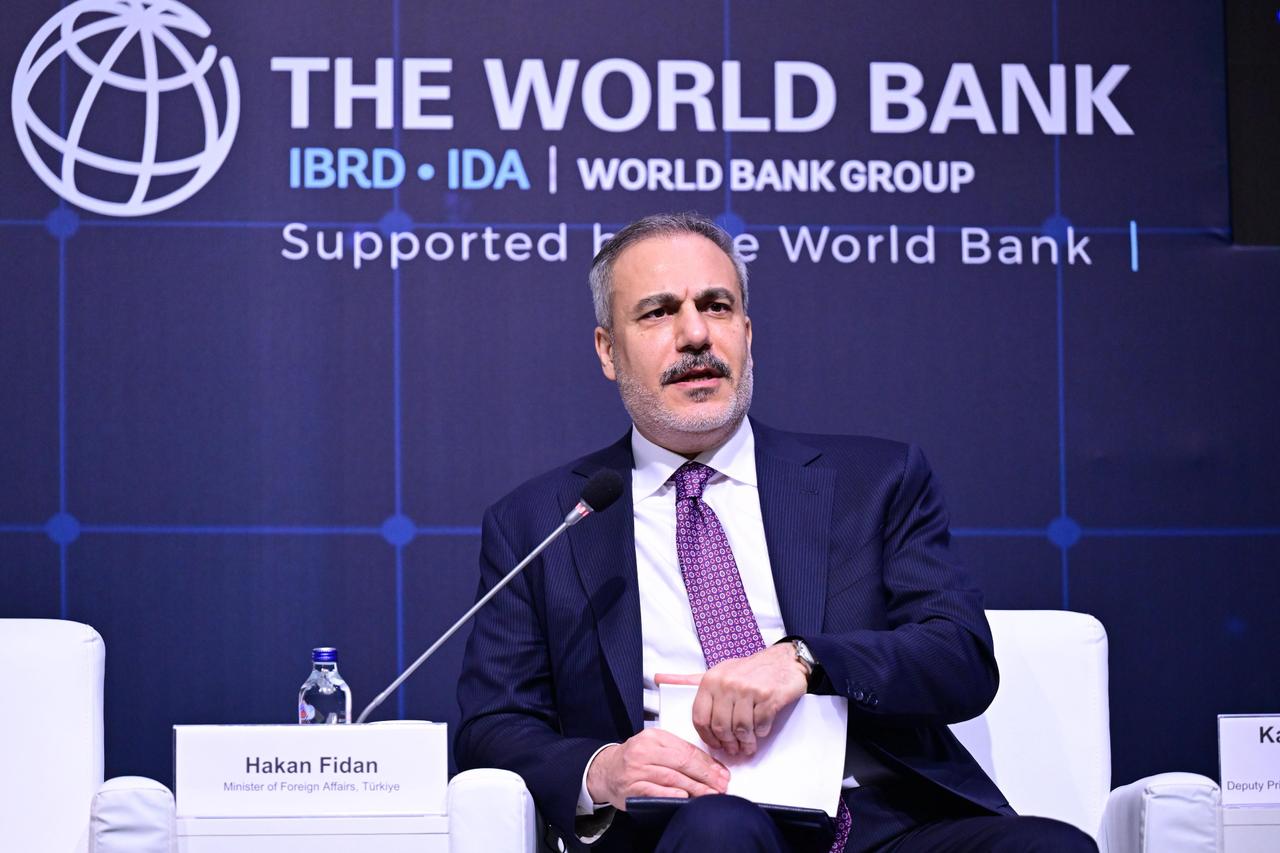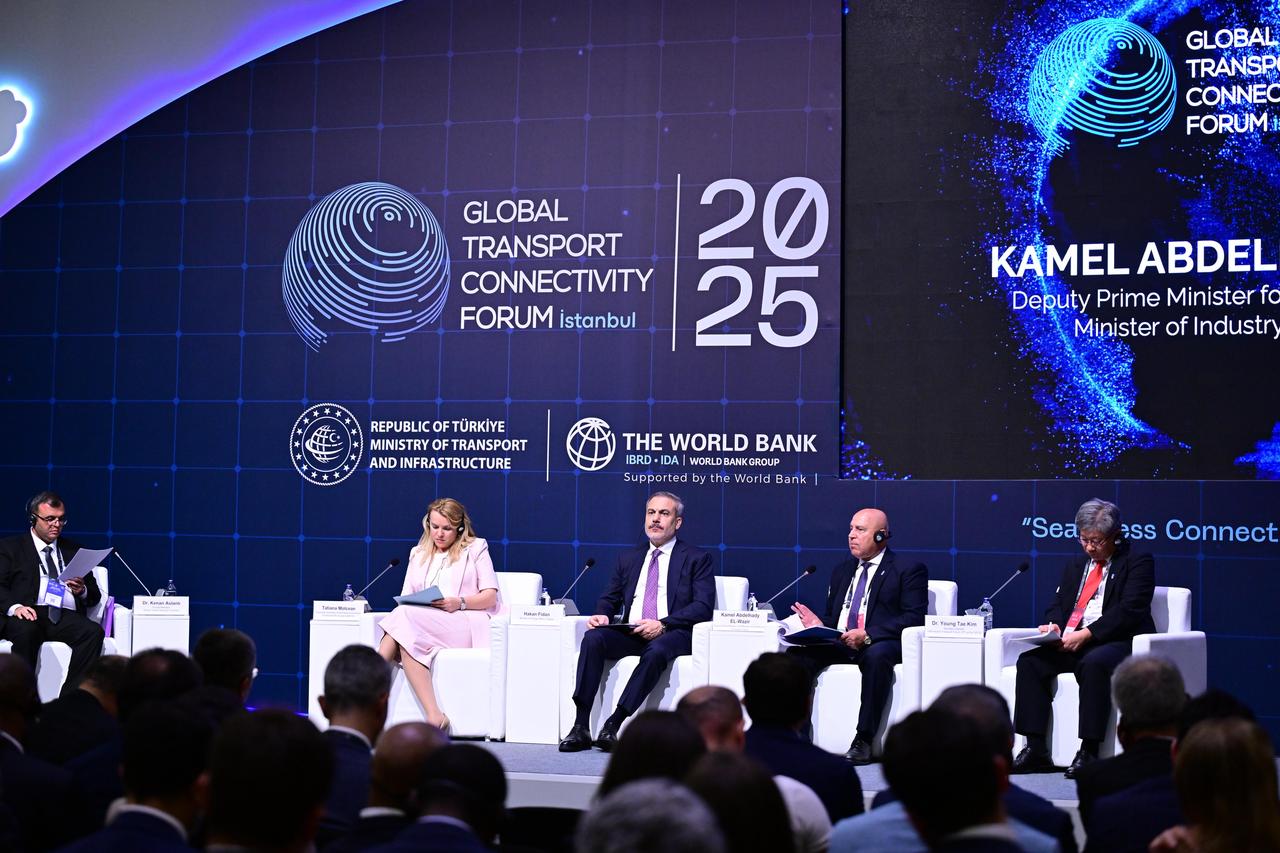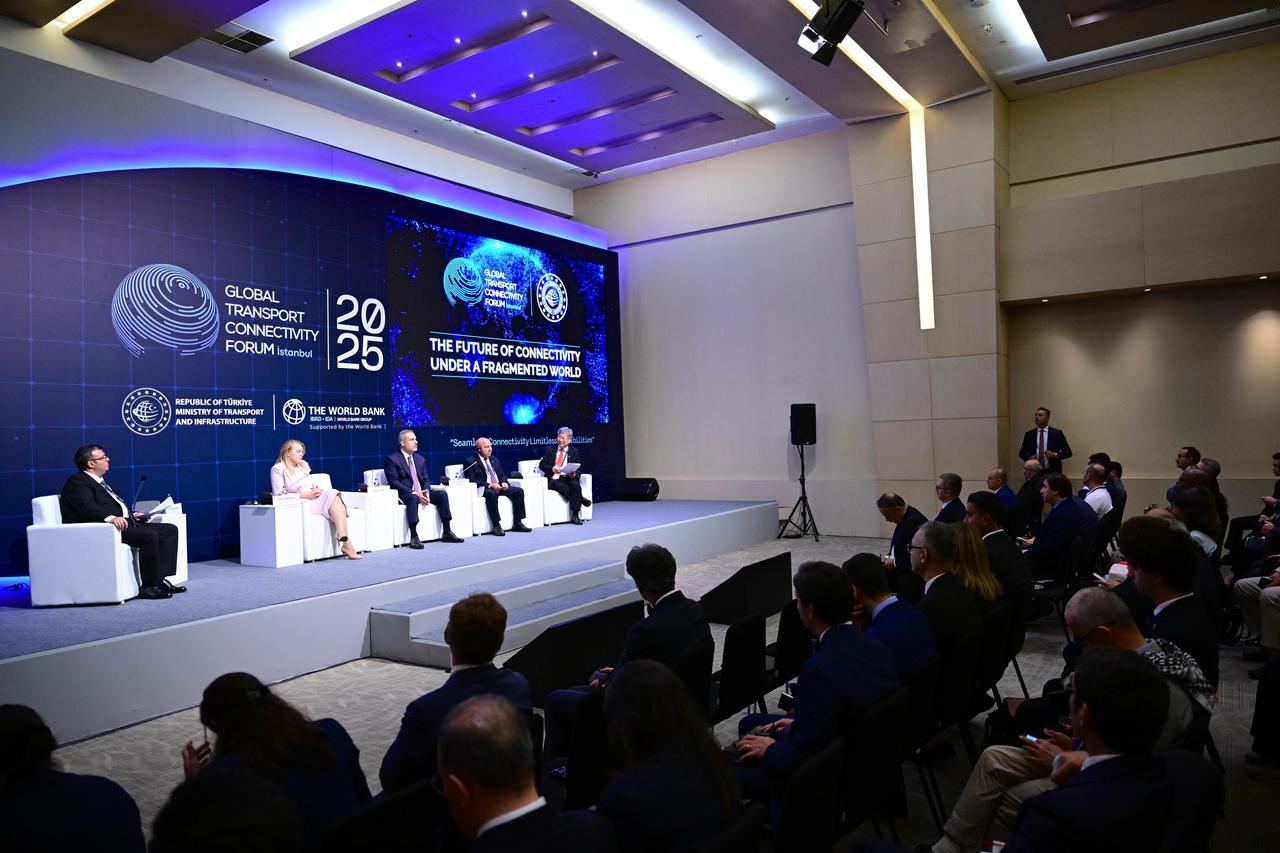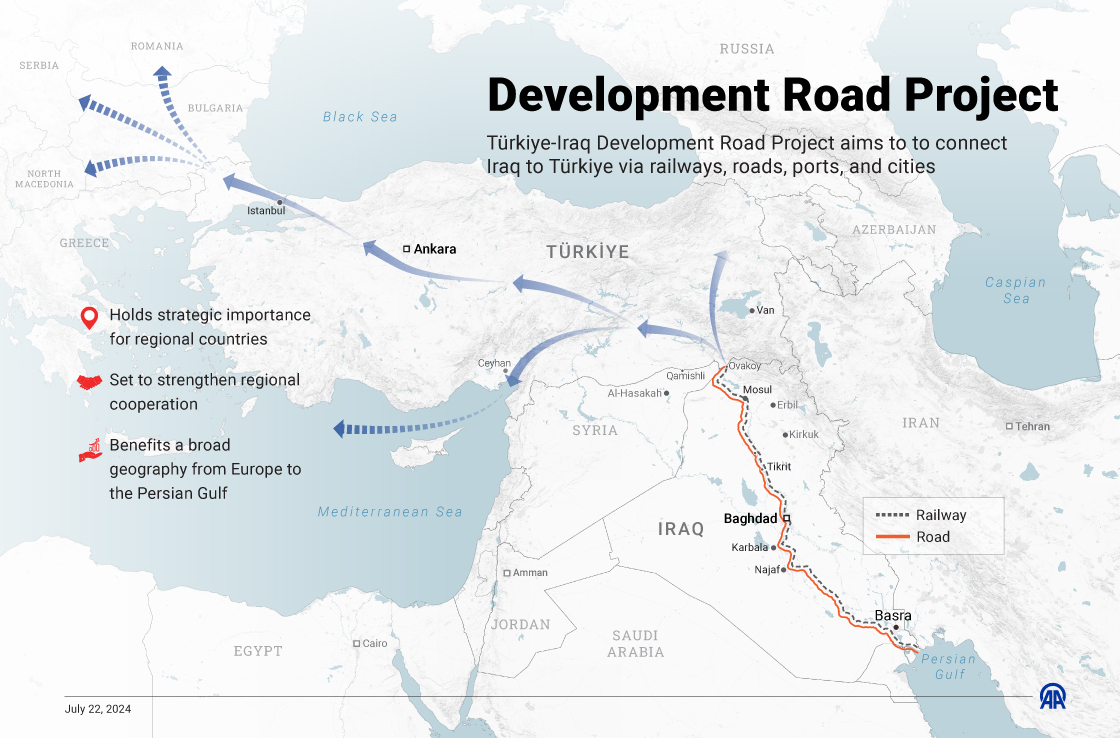
Turkish Foreign Minister Hakan Fidan said on Friday that recent global developments have underscored the strategic importance of transportation, energy, and digital connectivity, calling for increased international cooperation on alternative transport initiatives.
Speaking at the panel "The Future of Global Connectivity in a Fragmented World" during the Global Transport Corridors Forum in Istanbul, Fidan noted that transportation and connectivity are no longer just economic issues but top foreign policy priorities.
"Transportation and connectivity have become focal points of foreign policy. They are no longer merely issues of trade, business, or development — they are now the number one topic of diplomacy," he noted.
"The developments all of us have witnessed over the past two weeks have further highlighted the strategic importance of transportation and related issues," Fidan said, adding, "If we fail to work together, today’s instabilities risk undermining long-term global transport investments and energy security. That’s why we need to cooperate now more than ever on alternative initiatives to build trust and ensure greater predictability in international trade."

FM Fidan said Ankara is well-positioned to take a leading role due to its strategic location, industrial capacity, and commitment to regional peace and stability.
"Türkiye is a reliable partner. Thanks to our geographical location, trade and industrial capacity, and unwavering commitment to peace and security in our region, we are — in many ways — a necessary partner," he stated.
"Türkiye stands at a critical crossroads of Europe, Asia, and Africa, providing direct access to global markets," he added.
"Over the past 20 years, under the leadership of President Recep Tayyip Erdogan, we have invested nearly $200 billion in infrastructure projects. Seamless connectivity is one of our top priorities," Fidan noted.

Fidan highlighted the Trans-Caspian International Transport Route — also known as the Middle Corridor — as a key initiative connecting China to Europe.
"The Middle Corridor, passing through Central Asia, the Caspian Sea, and Türkiye, is the most efficient route," he said. "It will play a key role in transport linkages and create a win-win outcome for all stakeholders."
He said the corridor has gained further relevance due to the war in Ukraine and ongoing instability in Palestine, Lebanon, the Red Sea and Iran.
Fidan also pointed to the Baku-Tbilisi-Kars Railway as a central component of the corridor and a product of cooperation among Türkiye, Azerbaijan and Georgia.
"We are making significant progress in harmonizing the Middle Corridor with China’s Belt and Road Initiative and look forward to deepening this work on a mutual benefit basis," he said.

Fidan said Türkiye is working with Iraq to launch the Development Road initiative, which would run from Iraq’s Faw Port through Türkiye and into Europe.
"We are working to launch the Development Road as a north-south axis from the Gulf to Europe," he said. "It will link Iraq’s Faw Port to Türkiye and beyond, through new railways, highways, and energy lines."
"Both the Middle Corridor and the Development Road will enhance connectivity, drive joint investments, and support prosperity across the entire route," he added. Fidan also noted the importance of improved connectivity could foster stability across the region.
"In a fragmented region, connectivity is not just about trade — it’s about establishing trust, building peace, and fostering regional cohesion," he said.
"When Iraqi Prime Minister Sudani proposed the Development Road, we immediately supported it," he added. "President Erdogan believes strongly in regional cooperation and ownership as a path to peace and development."
Fidan said the project would also include digital infrastructure such as fiber-optic networks.
Fidan said current conflicts are disrupting existing transport routes, stating: "Wars such as the one between Ukraine and Russia have disrupted all modes of connectivity — from energy to transport corridors."
He called for an immediate end to Israeli military operations in Gaza. "The attacks on Gaza must end," he said, adding, "We must ensure access to basic humanitarian needs for the people of Gaza. Our priority is to stop the war."
He warned that future conflicts could affect maritime chokepoints such as the Suez Canal and the Strait of Hormuz by saying, "Wars and conflicts directly impact the potential for cooperation in the region."